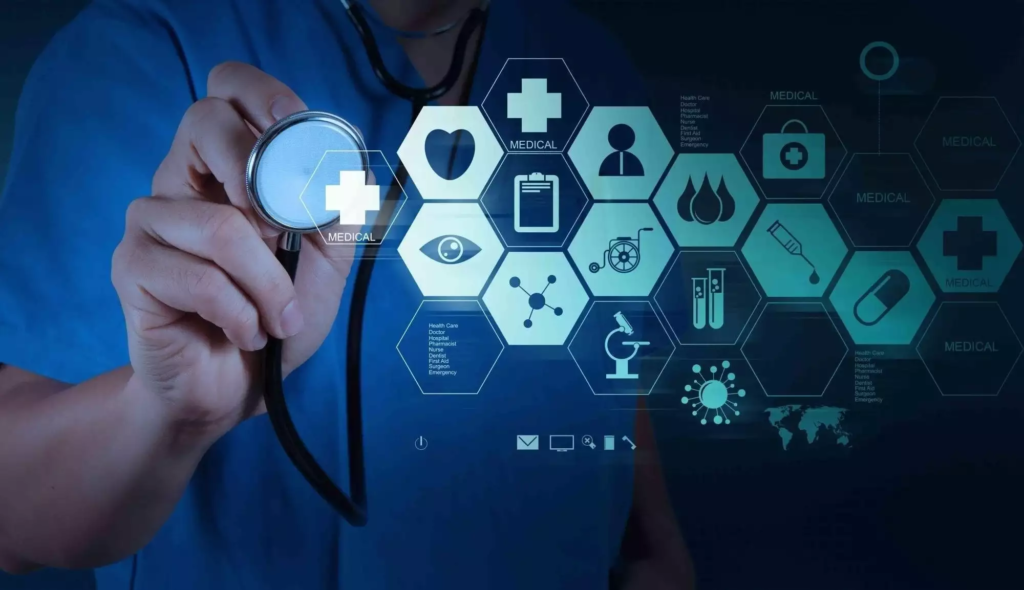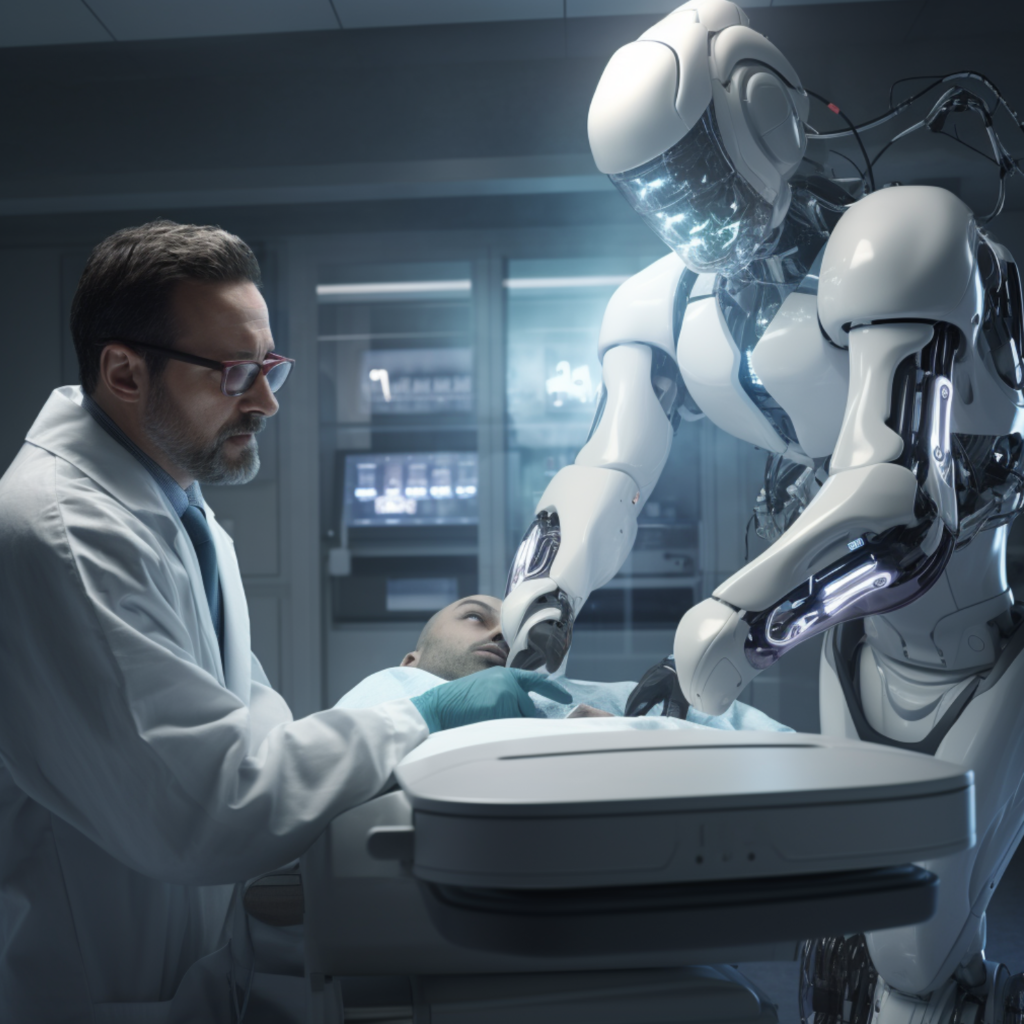Introduction to Emerging Health Technologies
Welcome to the exciting world of healthcare technology! As we step into 2024 and beyond, the landscape of health tech is evolving at a rapid pace, revolutionizing the way we approach medical care. From artificial intelligence to virtual reality, groundbreaking innovations are reshaping the future of healthcare as we know it. Join us on a journey through the latest trends in health technology that are set to transform patient care and medical practices for years to come. Get ready to explore the cutting-edge advancements that are paving the way for a healthier tomorrow.
Artificial Intelligence and Machine Learning in Healthcare
Artificial Intelligence (AI) and Machine Learning are revolutionizing the healthcare industry by enhancing diagnostic accuracy, predicting patient outcomes, and improving operational efficiency. These technologies analyze vast amounts of data to identify patterns and trends that may not be apparent to human healthcare providers.
By leveraging AI algorithms, healthcare professionals can make more informed decisions, leading to better treatment plans tailored to individual patients’ needs. Additionally, machine learning models can help detect diseases at an early stage by analyzing medical images or genetic information with high precision.
Furthermore, AI-powered tools enable proactive monitoring of patients’ health status in real-time, allowing for timely interventions and personalized care. As these technologies continue to evolve, they have the potential to transform the way healthcare is delivered worldwide.
Incorporating Artificial Intelligence and Machine Learning into healthcare practices holds immense promise for improving patient outcomes and driving innovation in the field.
Telemedicine and Remote Patient Monitoring
Telemedicine and remote patient monitoring have revolutionized the way healthcare is delivered. With advancements in technology, patients can now consult with their healthcare providers from the comfort of their homes. Telemedicine allows for virtual appointments, reducing the need for in-person visits and saving time for both patients and doctors.
Remote patient monitoring enables healthcare professionals to track patients’ vital signs and health data in real-time. This proactive approach to care helps identify any potential issues early on, leading to better treatment outcomes. Patients with chronic conditions benefit greatly from remote monitoring as it allows for continuous supervision without constant hospital visits.
The convenience of telemedicine combined with the effectiveness of remote patient monitoring is shaping the future of healthcare delivery. As technology continues to evolve, we can expect even more innovative solutions that prioritize patient-centric care and improve overall health outcomes.
Digital Health Records and Data Integration

In the realm of health technology, digital health records and data integration play a pivotal role in revolutionizing healthcare systems. By digitizing patient information, medical professionals can access comprehensive data instantly, leading to more informed decision-making and personalized care.
The seamless integration of various healthcare data sources allows for a holistic view of an individual’s health profile. This interoperability enhances communication among different providers and ensures continuity of care across various settings.
Moreover, digital health records enable patients to actively engage in their own healthcare journey by accessing their medical history and test results conveniently through online portals or mobile apps. This empowerment fosters a sense of ownership over one’s well-being.
With advancements in data analytics and artificial intelligence, these integrated records can also be utilized to identify trends, predict outcomes, and improve population health management strategies. The future indeed looks promising as we continue to harness the power of digitalization in healthcare.
Genomics and Personalized Medicine
Genomics and personalized medicine are revolutionizing the way we approach healthcare. By analyzing an individual’s genetic makeup, doctors can tailor treatments to specific genetic traits, leading to more effective and targeted interventions. This level of precision allows for personalized treatment plans that consider a patient’s unique genetic predispositions.
Through genomics, healthcare providers can predict disease risk more accurately, enabling early intervention and prevention strategies. Personalized medicine holds the promise of improving outcomes for various conditions by customizing therapies based on genetic factors. It opens up new possibilities for treating diseases such as cancer, cardiovascular disorders, and rare genetic conditions.
Incorporating genomics into medical practice is transforming the landscape of healthcare by shifting towards more individualized care approaches. As technology continues to advance, genomics will play an increasingly significant role in shaping the future of medicine and improving patient outcomes through tailored treatments based on their genetic profiles.
Robotics and Automation in Medical Procedures

Imagine a world where surgeries are performed with pinpoint accuracy and minimal human error. Robotics and automation in medical procedures are revolutionizing the way we approach healthcare. These advanced technologies allow for complex surgeries to be carried out with precision, leading to faster recovery times and improved patient outcomes.
Robotic-assisted surgery systems provide surgeons with enhanced dexterity and control, allowing them to perform intricate procedures with greater ease. Automation streamlines repetitive tasks, reducing the risk of fatigue-related errors during lengthy operations.
With continuous advancements in robotics and automation, the future of healthcare looks promising. From surgical robots assisting in delicate procedures to automated medication dispensing systems, these technologies are reshaping the landscape of modern medicine.
lockchain Technology for Secure Health Data Management
Blockchain technology is revolutionizing the way health data is managed and secured in the healthcare industry. By utilizing decentralized networks, blockchain ensures that sensitive patient information remains tamper-proof and transparent.
The key feature of blockchain is its ability to create a secure chain of blocks containing encrypted data. Each block in the chain is linked to the previous one, forming an immutable record that cannot be altered without consensus from all participants in the network.
This level of security makes blockchain ideal for protecting electronic health records (EHRs) from cyber threats and unauthorized access. Patients can have peace of mind knowing that their personal health information is safeguarded through this innovative technology.
Moreover, blockchain facilitates interoperability among different healthcare providers by enabling seamless sharing of data while maintaining privacy and confidentiality. This leads to improved coordination of care and better outcomes for patients across various medical settings.
As the healthcare landscape continues to evolve, embracing blockchain technology will be crucial in ensuring the integrity and security of health data for years to come.
Virtual Reality (VR) and Augmented Reality (AR) in Healthcare
Virtual Reality (VR) and Augmented Reality (AR) are revolutionizing the healthcare industry in ways we never thought possible. These cutting-edge technologies are not just for gaming or entertainment; they have found their way into hospitals and medical facilities, enhancing patient care and improving surgical outcomes.
With VR, patients can be transported to calming environments during procedures, reducing anxiety and pain levels. AR allows surgeons to overlay digital information onto a patient’s anatomy in real-time, aiding in precision during complex surgeries. Medical students can also benefit from immersive simulations that provide hands-on training like never before.
The potential of VR and AR in healthcare is vast, from rehabilitation therapies to mental health treatments. As these technologies continue to evolve, we can expect even more innovative applications that will further transform the way we approach healthcare delivery.
Conclusion: Preparing for the Future of Health Technology
As we look ahead to the future of health technology, it’s essential to embrace the transformative power these advancements bring. By staying informed and adaptable, we can navigate the evolving landscape of healthcare with confidence. It’s crucial for professionals in the industry to continuously educate themselves on emerging technologies and trends.
Preparing for tomorrow means being proactive today. Embracing innovation and exploring new possibilities will help us stay at the forefront of healthcare delivery. Collaboration between healthcare providers, tech companies, and regulatory bodies is key to ensuring a seamless integration of new technologies into existing systems.
The future holds endless opportunities for improving patient care and outcomes through health technology. By fostering a culture of curiosity and openness to change, we can build a more efficient and patient-centric healthcare system. Let’s embark on this journey together towards a brighter future in health technology!



